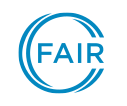Award winning documentary filmmaker Meg Smaker is a courageous and gifted storyteller. Her latest film, The Unredacted (formerly known as Jihad Rehab), masterfully follows the lives of four Yemeni men who spent 15 years in Guantanamo Bay prison and then were released to Saudi Arabia for rehabilitation and training with the goal of reentering society (see this New York Times article on the Saudi resettlement program).
The film’s access is beyond extraordinary. For the last 20 years we have talked about these men, this film is the first time we truly talk with them. It is also a look inside Saudi Arabia that we just have never seen before.
Jihad Rehab had its world premiere at the prestigious Sundance Film festival earlier this year, and received rave reviews from all the major critics and trades:
This is a movie for intelligent people looking to have their preconceived notions challenged.
Jordan Hoffman at The Guardian
This kind of willingness and aptitude to understand the layers of the otherized has never felt more urgent.
Tomris Laffly at Variety
Americans, in particular, are rarely presented with viewing options asking them to dig deeper when it comes to discussing terrorism from this region of the world, and so there’s bound to be criticism. For those open to in-depth conversations about how we can truly identify, and perhaps even solve, the key problems behind this never-ending cycle of violence, Jihad Rehab will be a revelation.
Ronda Racha Penrice at The Wrap
The documentary pulls off an incredible feat of empathy: you see these men as people, not just for a certain part in their lives they are trying to move from. You also understand just how horrific and backwards Guantanamo was in comparison, and appreciate the significance in their being able to open and close doors on their own volition. Jihad Rehab makes you look close at lives we as Americans have spent so long trying to look away from.
Nick Allen at Roger Ebert
Most importantly, Smaker's thoughtful interviews expose the complicity of an America desperate for 9/11 answers. "I'll be honest: I was so provoked by the documentary that I had to cool off for a few days before writing this review. The unflinching honesty of Jihad Rehab made me angry - about USA and its arrogance about Afghanistan, about Riyadh, about the human spirits that are restored only to be crushed again. It also made me grateful for filmmakers like Meg Smaker, who take unprecedented leaps of faith without knowing where they will land. With Jihad Rehab, she creates a fire that cannot be doused.
Rahul Desai at The Film Companion
Despite the film’s initial success, a handful of filmmakers mounted a campaign to take down the film. These attacks, which ranged from accusations of Islamophobia to coercion and endangerment of the film’s subjects, started when the film was announced in the Sundance lineup nearly 2 months before anyone had actually seen it.
Read a recent New York Times story by Michael Powell about Meg and the controversy surrounding the film.
This small group’s strategic amplification techniques, such as intentionally placed op-ed articles, paid Twitter campaigns, and threats from legal counsel forced institutions to capitulate. It caused Sundance to apologize for the film not once, but twice, and one of the film’s Executive Producers, Abigail Disney, to also issue a formal apology that essentially damned the film from any distribution.
Jihad Rehab had been invited to screen at top festivals all over the world. However, fear that this angry mob would then come after them caused all these other prestigious film festivals to pull the film after they had already invited it—making it nearly impossible for anyone to see the film for themselves.
Read a recent National Review story by Sebastian Junger about Meg and the cancelation campaign surrounding the film.
Meg moved to the Middle East to study Arabic and Islam, lived and worked in the region for over 10 years, and spent 5 years making Jihad Rehab. Having spent more time at the center than any other journalist or scholar, she is one of the only real experts on this rehab program.
So what is Meg’s crime? She is not a Muslim herself, and according to the group of people attacking the film, should therefore not be allowed to tell these kind of stories.
There is one thing even more damaging than the blacklisting of this film from distribution, violating Meg’s artistic freedoms, and crushing her civil and Constitutional rights. This story is not only timely but can help inform the public about the men in Guantanamo and also our government’s policies on how to handle them.
FAIR strongly opposes the mob intimidation and cancel campaign against Meg Smaker and her film. We will continue to support her, and to defend against all identity-based discrimination in the arts.


